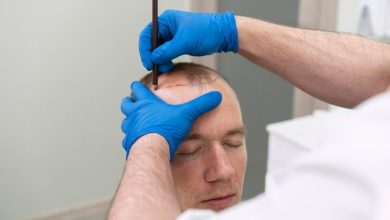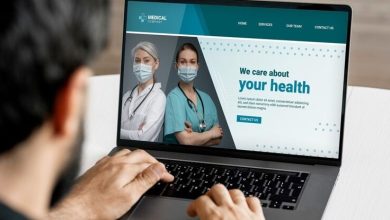Do You Need a Probiotic?

Probiotics have become incredibly popular in recent years – and for good reason. These powerhouse supplements can improve and enhance not just the health of your gut, but also of your entire body and mind.
What are probiotics? What are their benefits? And should you be taking them?
What are Probiotics?
Probiotics are live microorganisms known to be beneficial for the body. They are predominantly bacteria that can:
- Help digest food
- Produce nutrients
- Destroy harmful bacteria, viruses, fungi, parasites, and toxins
- Destroy disease-causing cells, including cancer cells
A lot of the microorganisms contained in probiotics are similar to or the same as those that live naturally in the body.
Probiotics are found in several fermented foods and drinks, including yoghurt, kombucha, kefir, sauerkraut, kimchi, miso, dark chocolate, pickles, tempeh, brined olives, and raw cheese. They thrive in your body when you consume a healthy diet with limited salt, sugar, and saturated fat.
They are also available in supplement form.
What are Some Benefits of Probiotics?
Probiotics offer many benefits. These include but are not limited to:
- Help maintain a healthy microbiome (the natural community of beneficial microorganisms in the body)
- Improve gut health and help alleviate pain, gas, and bloating
- Produce healthy substances the body needs to thrive
- Promote and support a healthy immune system
- Maintain skin health and alleviate eczema
- Benefits of probiotics for women, in particular, include hormone balance and maintenance of optimal urinary tract and vaginal health.
- Support optimal mood and brain function and sleep better
- Help reduce inflammation
- Improve thyroid function
- Help manage gastrointestinal disorders including irritable bowel syndrome (IBS) and ulcerative colitis
When is Taking Probiotics Most Important?
We can all benefit from taking a probiotic every day – from birth into old age. Most baby formulas are even supplemented with probiotics.
Taking probiotics is one of the most effective ways to mitigate the effects of a suboptimal diet, common illnesses including colds and flu, stress, and other environmental factors that negatively influence our bodies.
There are, however, certain times when taking a probiotic is extremely important.
- After a Course of Antibiotics – probiotics and antibiotics are frequently prescribed together. Antibiotics work by killing bacteria that cause disease or infection. Unfortunately, they also kill the beneficial bacteria which keep the gut and the rest of the body healthy. Taking probiotics will help restore the balance.
- If you suffer from Thrush – caused by the fungus Candida albicans, thrush is very common. It is most frequently seen in the vagina, however, can also occur in the mouth (especially in infants) and areas including the groin and armpits. It is quite common after a course of antibiotics. Probiotics play an important role in restoring and maintaining the proper balance to avoid or treat thrush.
- If you have a UTI – probiotics may help restore the healthy balance in the urinary tract and support ongoing urinary health, especially in women who are more prone to UTIs.
- If you have IBS – the symptoms of medically-diagnosed IBS (gas, bloating, pain, constipation, and diarrhoea) may be relieved by taking a daily probiotic. Other digestive conditions which may benefit from taking probiotics include diverticular disease, inflammatory bowel disease, constipation, and traveller’s diarrhoea.
- After Bowel Prep – if you need to have a colonoscopy or bowel surgery, you will be required to take bowel prep. This is a course of medicated drinks that, combined with fasting, clears all contents from the stomach, small intestine, and colon (large intestine). It also dramatically alters the natural microbiome in the gut, which is located throughout the gut but predominantly at the proximal end of the colon. Probiotics can help restore healthy bacteria to the gut more quickly than it would otherwise occur. Scientific research has demonstrated the benefit of taking probiotics after a colonoscopy in terms of abdominal pain reduction.
- During/After Cancer Treatment – Chemotherapy usually causes significant side effects including severe vomiting and diarrhoea, as well as inflammation of the mouth and throat. (Radiation therapy to any area of the digestive tract, from mouth to anus, has similar effects). Scientific trials have demonstrated the benefits of taking oral probiotics to help support healthy lifestyle gut bacteria and decrease some of these negative effects. The use of probiotics or any other supplement during cancer treatment must be discussed with your oncologist first.
Other conditions which benefit from taking probiotics include infant colic, acid reflux, gum disease, seasonal allergies, asthma, dermatitis, psoriasis, eczema, acne, sugar cravings, insulin resistance, elevated cholesterol levels and upper respiratory tract infections. They may also help with depression, anxiety, mood disturbances, sleep disturbances, and chronic fatigue.
Tips for Taking Probiotics
- While you can take them anytime, for optimised effects, take probiotics on an empty stomach, 30 minutes before food. This will speed their route to the gut. Some experts recommend morning is better than evening.
- No matter when you choose to take them, try to take them at the same time every day.
- If you are taking antibiotics, check with your doctor or pharmacist first – they may recommend that you take them several hours before or after your antibiotic.
Always take probiotic supplements according to the dosage instructions on the label. Check with your doctor first.




